LEWISTON – Dr. Richard King always wanted to be a Navy man.
His father, James David King, served as a captain in the Navy Medical Corps for 18 years, and the younger King dreamed of following in his father’s footsteps.
“Ever since I was a kid, I was always drawn to the Navy,” said King, a trauma surgeon and interim chief of surgery at Central Maine Medical Center in Lewiston.
He joined Navy ROTC as a freshman at Cornell University in New York, but he knew his potential to rise through the ranks was limited. Because of eyesight issues – he’s nearsighted – Navy rules at the time made him ineligible to join combat forces.
After a year in the ROTC program, he left. Disappointed but still determined to join the military, King entered the Army following medical school.
He served five years as a U.S. Army officer with NATO forces at the Allied Forces Central Europe command in Brunssum, Netherlands. He was honorably discharged with the rank of captain in 2000.
“It was just actually one of the most rewarding times I’ve ever experienced,” King said. Still, the disappointment that he might never make it to the Navy stuck with him.
That is, until Tuesday at a ceremony at CMMC, where King received a direct commission to serve as a commander in the Navy Reserves.
King said Wednesday that he was motivated to apply for a direct commission last August, after hearing the news that 13 U.S. service members were killed in an attack in Kabul, Afghanistan.
“It affected me quite deeply. Something about the fact that these are the last people to die,” he said.

Richard King, right, is sworn in Tuesday as a commander in the U.S. Navy at a ceremony at Central Maine Medical Center in Lewiston. King is the interim chief of surgery and the trauma medical director at CMMC. Andree Kehn/Sun Journal
“I have children who are the same age, in their mid-20s,” one of whom is considering joining the Navy.
“I just thought to myself, you know, (his son) and knowing that military medicine is not having the same degree of specialization as it did during Afghanistan and Iraq, I thought it was a role for me.”
King, who is now 56, has 10 years until he has to retire from the military.
“So I got 10 years, hopefully, that I can contribute something.”
‘I THINK HE’D BE VERY HONORED.’
During Tuesday’s ceremony, King’s wife, Jennifer, presented him with his father’s sword.
“I believe I feel that this sword embodies my father, who brought it into service 75 years ago, and today I returned it to service,” King said in a speech.
It was an emotional moment shared with his wife, his children, Beatrice and Sebastian, his Navy recruiter, Petty Officer First Class Aboagye Richmond and his CMMC colleagues.
“I think he’d be very honored,” King said of his father, of his commission.

Dr. Richard King’s father, Dr. James David King, right, treats a Marine wounded in the Battle of Chosin Reservoir in the early 1950s at Yokosuka Naval Hospital in Japan. The elder King was a captain in the U.S. Navy. Courtesy of Richard King
King’s father, who also served in the Army prior to joining the Navy, was an accomplished thoracic surgeon. After he retired from the Navy in 1967, when King was just 2 years old, the family moved to Los Angeles, where he continued to practice medicine.
King told a virtual crowd of medical students and surgery residents during grand rounds at Massachusetts General Hospital last year that although he grew up “around the giants in medicine,” he did not always have an interest in the field. But he was intrigued by the military.
“I think that stemmed from the fact that I never saw my father get any respect, really from anybody, except when we would go onto a military base,” King said. The Marine sentries at the gate, seeing the eagle on his father’s car that denoted his rank as Navy captain, would “snap into a crisp salute.”
“I think that always stuck with me,” he said.
James “Jimmie” King was born in 1909 in Japanese-occupied Taiwan, one of nine siblings. Jimmie’s father died of typhoid when he was only 12 years old. A couple of years later, he went to Shanghai and then to America for high school.
Following his undergraduate studies in Ohio, Jimmie graduated from George Washington University in 1934 with his Doctor of Medicine and went on to New York to continue his surgical training.
King said his father faced an “anti-Asian environment” in prewar America, but the discrimination crossed borders.
On a journey to visit his family in Japan and Taiwan, King described the ship his father was on being intercepted by Japanese soldiers. Although the elder King was not yet an American citizen – and technically a Japanese citizen, given his birthplace – members of the Japanese secret police, the Kempeitai, suspected him to be a spy for the Americans and “severely interrogated him.”
It was just the first of many shocking and deeply traumatic experiences that the elder King would endure over the next 20 or so years.
But there were triumphs, too.

Dr. Richard King, left, receives a congratulatory hug from his U.S. Navy recruiter, NC1 Aboagye Richmond, after King was sworn in as a commander during a ceremony at Central Maine Medical Center in Lewiston. King is the interim chief of surgery and the trauma medical director at CMMC. Andree Kehn/Sun Journal
On Sept. 9, 1942, Jimmie King was commissioned to serve in the U.S. Army as a captain under an American program that allowed anybody from an Allied nation that was not a citizen to join.
“Became an American citizen today,” a diary entry from Jan. 22, 1943, read.
The younger King said his birth certificate listed his nationality as Chinese, even though he was born in the Japanese Empire.
After serving as a medical doctor in World War II, Jimmie was commissioned to the Navy Medical Corps in 1949 and served as the chief of surgery at the Yokosuka Naval Hospital in Japan in the early 1950s during the Korean War.
King said that over the course of a few weeks in the winter of 1950 to 1951, the hospital received over 6,000 Marines wounded in the Battle of Chosin Reservoir.
His father never left his patients’ bedside.
“We have a bed crisis here in Maine. It doesn’t compare,” King said during the grand rounds at Massachusetts General last fall. “In my mind, my inspiration is, we can take care of anybody. If my father as chief of surgery could, then we can all take care of people no matter what the situation.”
Now, King looks to continue his father’s legacy as a Naval officer. He’ll spend at least one weekend a month drilling at the Naval Reserve Center in Bangor with a unit affiliated with Walter Reed Medical Center in Bethesda, Maryland.
As a reservist, he could be called into active duty at any time. It’s something King looks forward to, should he have the opportunity.
“I would like to contribute what I can,” he said.
Send questions/comments to the editors.

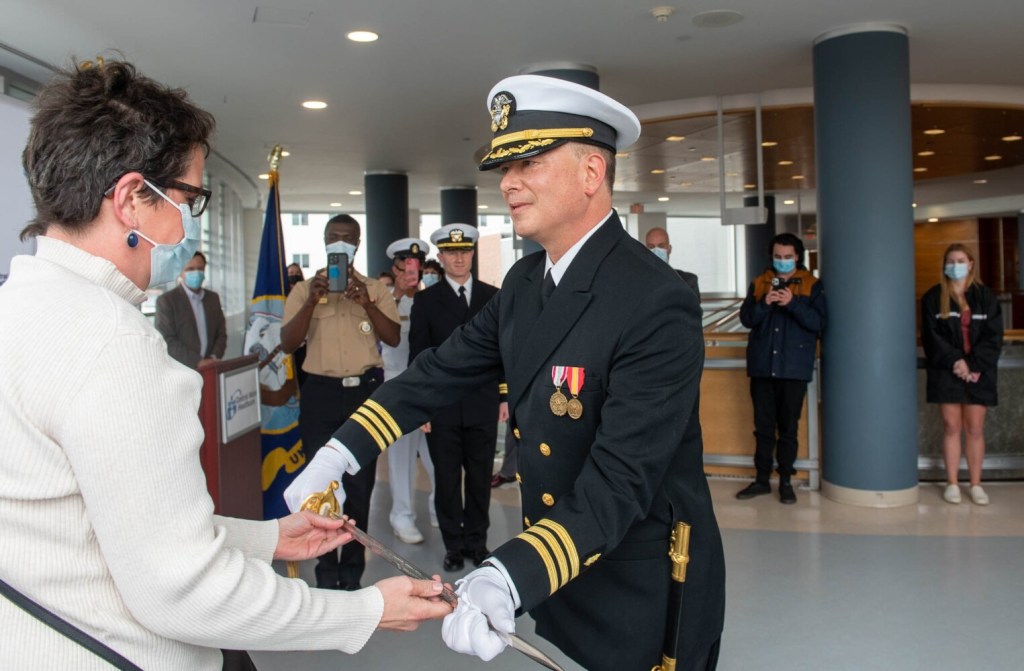
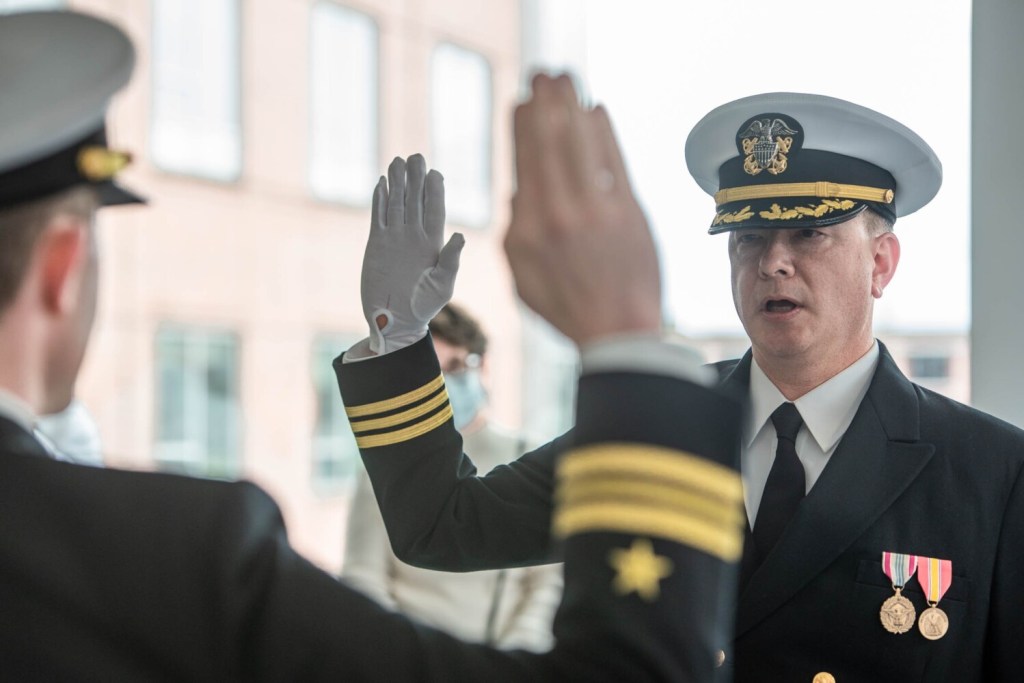
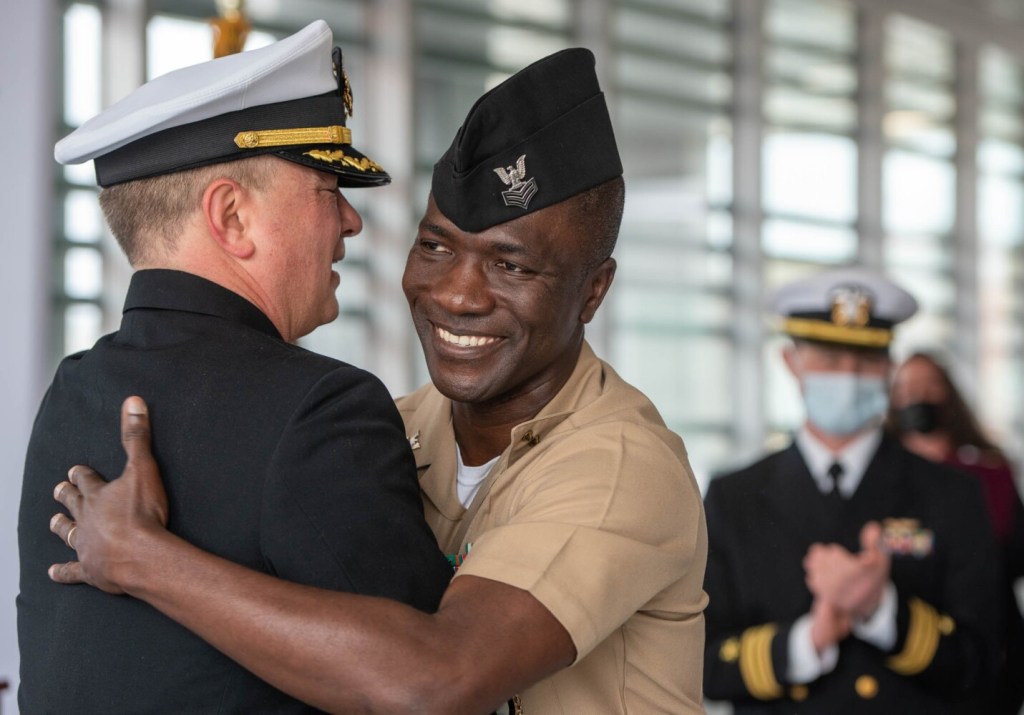
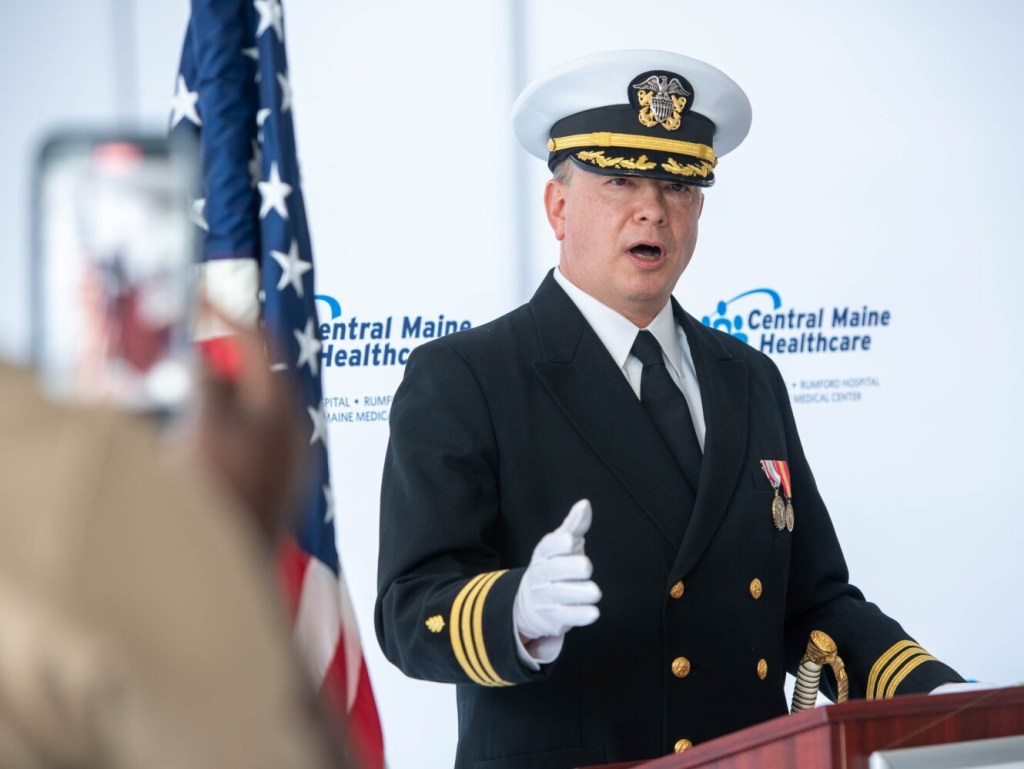
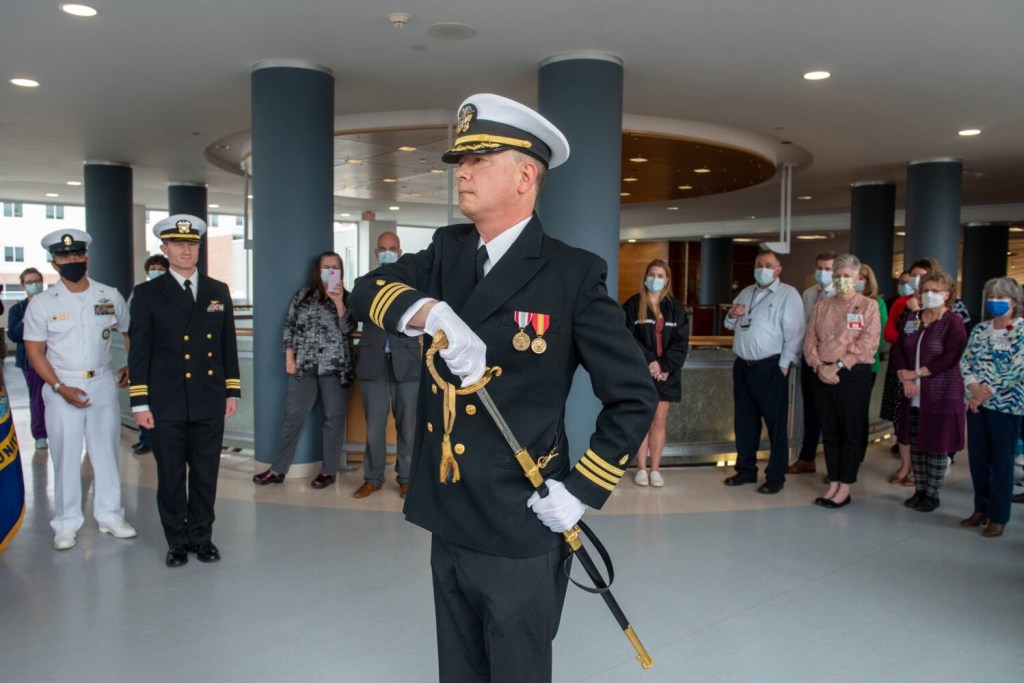
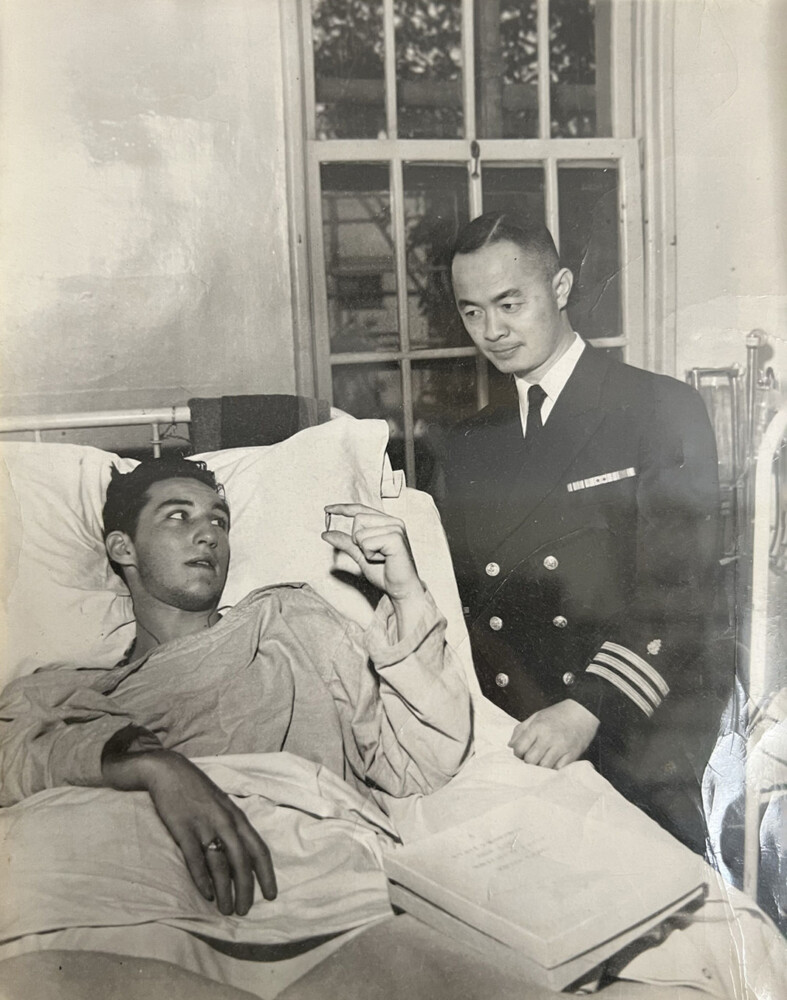

Comments are no longer available on this story